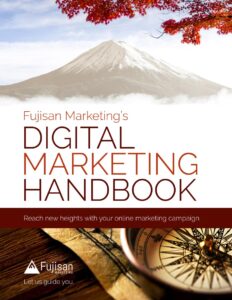Worried about keeping up with Google’s algorithm and its occasional changes? First off, don’t be. (Or, don’t really be.) Google recently had a significant core update that’s worth dissecting, but in the end it’s mostly a good excuse to discuss A) Google’s priorities and B) how they affect you. This change should not mean an overhaul of your content strategies — unless said strategies needed overhauling anyway — but Google shows they’re continuing to place increasing significance on content integrity and quality.
Here’s what we know:
What is this “Google Core Update,” anyway?
A few times a year, Google will apply a core update. The most recent one was this May (which is 2020, if you’re reading this in the future). Usually these aren’t really significant and affect a small number of global searches, but this version has turned out more significant than most.
Because the changes in this core update are more substantial than most of the past ones, rankings and general Google search performances are affected more than usual. This means your ranking on Google could be higher or lower than usual, and it’s important you know why and how.
According to SEMRush, major industries and topic-based sites who are most affected this time include travel, real estate, health, pets and animals, and sites dealing with people and society. Also significantly affected are news-related sites, which have seen a positive effect and higher readership.
Why is this important and what should you do?
Always tight-lipped, Google never explains exactly what they change; this is still true. They did, however, offer a fun little movie analogy to add context: essentially, old movies aren’t bad, but new movies come out every year and new space is needed to promote them. Same with the internet, except on a massive scale.
Per usual, Google loves to be vague about these things — they are famously tight-lipped when it comes to the algortihm. Plus, they intentionally want people to focus not on “gaming the system” but rather creating the best, most high-quality version of their work that will then be rewarded. So, they say webmasters don’t need to do anything special as a result of this update. This is similar to when Google Panda came out in 2011, when Google said “We suggest focusing on ensuring you’re offering the best content you can. That’s what our algorithms seek to reward.” For what it’s worth, that’s true in the sense that, if you’re involved with running a site, you should still focus your energy on being high-quality and not get distracted by wondering “How do I get Google to love me?!” The former will realize the latter.

But still, ignoring this non-advice, is there anything you should do moving forward along with maintaining high-quality content to move the Google-needle more in your favor?
Luckily, Google did offer a list of questions that webmasters can use to guide them in the future. By “answering” these questions, you’ll help keep your site in particularly good graces with the Google gods. (Say “good graces with the Google gods” five times fast.) This wouldn’t be super significant, but Google doesn’t make a habit of offering many tidbits of help, so it’s wise to take advantage of the few hints they provide when possible.
Here’s a few of them:
- Does my content provide original information, reporting, research, or analysis?
- Is this the sort of page you’d want to bookmark, share with a friend, or recommend?
- Is this content free from easily-verified factual errors?
- Does this content display well on mobile devices when viewed thereon?
- Does this content seem to be serving the genuine interests of visitors to the site? Or does it seem to just be attempting to guess what might rank well in search engines?
Remember the acronym EAT: expertise, authority, and trustworthiness. Then, build your content to be strong here.

As long as you focus on maintaining a high value in your content, you’re serving your best interests. That’s because by doing so, you’re serving your users best interests, and that’s what Google wants to reward. In other words: do good work. Period.




